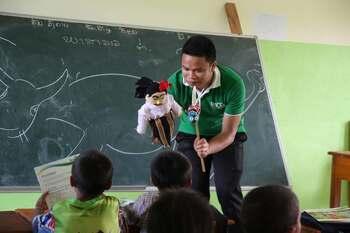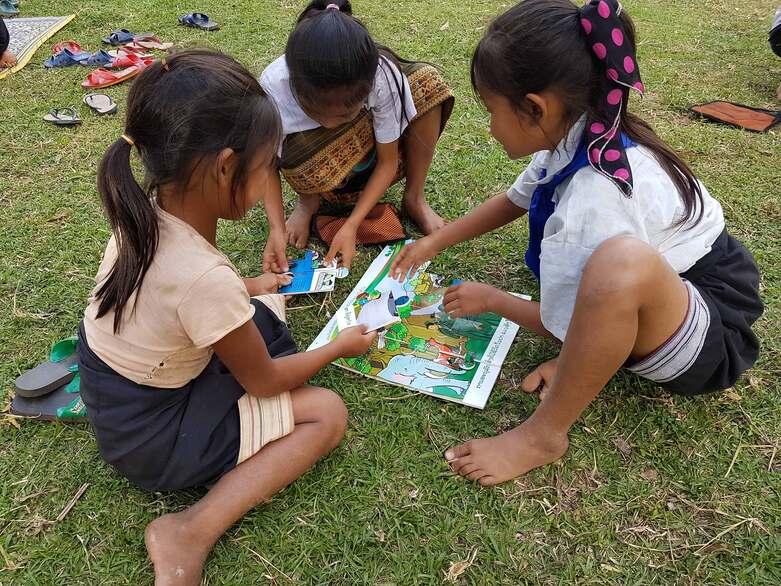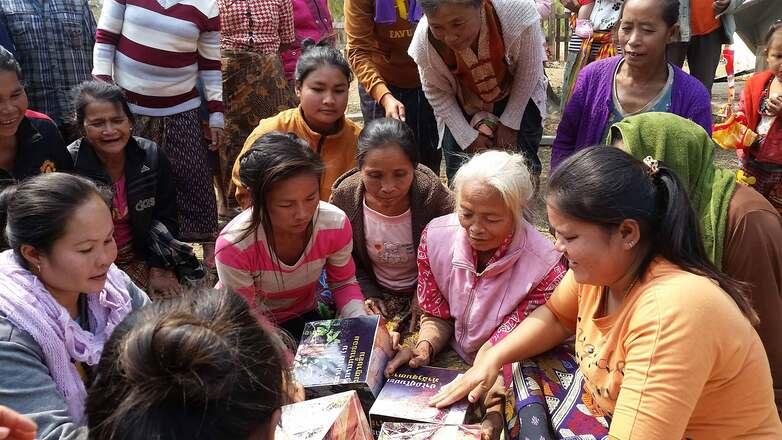Approach
In this project, GIZ is cooperating with the Department of Environmental Quality Promotion (DEQP) of the Lao Ministry of Natural Resources and Environment. Other partners include the Ministry of Information, Culture and Tourism, a number of state and civil society organisations, and the mass media.
The project combines strategic activities at the national level with communication and learning processes at the provincial, district and village levels. An earlier project by the same name drew on an extensive study of environmental knowledge, attitudes and practices to develop an environmental education and communication strategy. This identifies the groups, topics and communication channels to be targeted through environmental awareness-raising campaigns.
Most of the project’s activities take place in Houaphanh and Khammouane provinces, where other Lao-German projects are being implemented for the protection of forests and biodiversity and on climate change issues. The project also conducts activities in Sainyabuli and Bolikhamxay provinces and in the capital, Vientiane. A core element of the project’s approach is its support for capacity development in the areas of environmental education and communication.
The National Strategy on Environmental Education and Awareness, which was revised with the project’s assistance, provides the policy framework for its work. The project supports DEQP in its role of coordinating all environmental education activities on behalf of the Lao Government.
As part of its environmental education and communication strategy, the project works with a variety of media channels on their planning and production processes. It delivers training on environmental journalism and supports Lao National Radio and Lao National Television, as well as provincial and district radio stations, to produce environmental programmes. It also issues press releases and provides detailed information to two daily newspapers that publish news articles on the project and in-depth articles on environmental topics.
Results achieved so far
The project has fitted two vehicles with solar-powered multimedia equipment that is used to support non-formal education activities. Extensive environmental education tours are now conducted in the four above-mentioned provinces. DEQP runs week-long tours that provide environmental education to local government officials and other decision-makers in the provincial and district capitals of the four provinces. The learning programmes address forest protection, forests and natural disasters, wildlife protection, biodiversity conservation and the collaborative management of national protected areas.
DEQP works with a local non-governmental organisation to run month-long tours on the same topics to villages in target districts in Khammouane, Houaphanh and Sainyabuli provinces. Together with the National University of Laos, it also runs tours to Bolikhamxay province that address the topic of appropriate waste management. These are aimed at schoolchildren, village elders and the general public, offering diverse activities tailored to each group. The use of edutainment methods has been particularly well received. Together with local theatre groups, such as Khao Niew, and with the Lao National Theatre, the project has produced a series of plays and puppet shows which it presents during the tours. On average, the tours reach more than 25,000 people in the four provinces. In between the tours, environmental education activities are delivered in selected villages in Houaphanh and Khammouane by the Provincial Office of Natural Resources and Environment (PONRE), with technical support provided by two development advisers.
Further activities have been organised to promote appropriate waste management during the Vientiane Boat Racing Festival and the That Luang Festival, which engage with festival-goers in fun and entertaining ways.
Four-week summer film schools provide young Lao journalists with hands-on experience of environmental film-making and production, and nationwide photographic competitions on environmental issues are also held. The two photography competitions held to date have involved exhibitions that have been shown university faculties, colleges and other locations.
Factsheets on a number of environmental topics that affect Laos are issued to stakeholders at the central, provincial and village levels, and up-to-date information on project activities, approaches and materials is available from the project’s website and newsletters.


